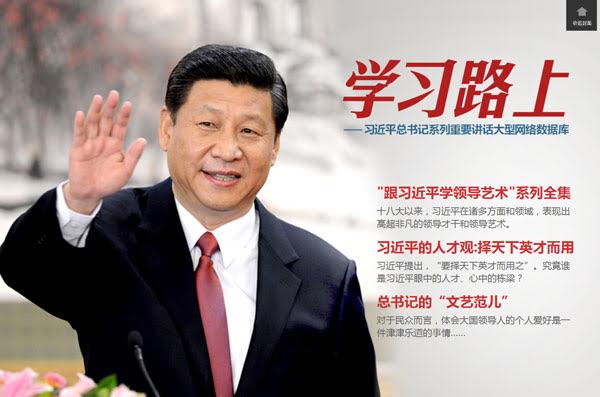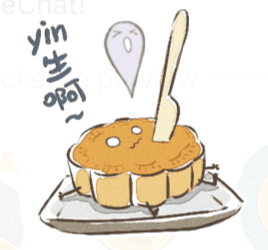Archive for Proverbs
July 28, 2020 @ 1:29 pm· Filed by Victor Mair under Language and archeology, Language and history, Language and philosophy, Metaphors, Proverbs, Rhetoric
Earlier this year, we had a post about a fascinating new Wikipedia article on "Goblet word" (5/30/20). That post was about a vessel that served as an analogy for a rhetorical device called zhīyán 卮言 ("goblet word"). Now we have another magisterial Wikipedia article by an anonymous master of Chinese esoterica. It's about another name for a similar type of vessel called qīqì 欹器, "tilting vessel".
The qīqì (欹器, "tilting vessel" or "tipping vessel") was an ancient Chinese ceremonial utensil that automatically overturned and spilled its contents once it reached capacity, thus symbolizing moderation and caution. Both Confucian and Daoist Chinese classics include a famous anecdote about the first time Confucius saw a tilting vessel. In the Confucian tradition (e.g., Xunzi) it was also named yòuzuò zhī qì (宥座之器, "vessel on the right of one's seat"), with three positions, the vessel tilts to one side when empty, stands upright when filled halfway, and overturns when filled to the brim—illustrating the philosophical value of the golden mean. In the Daoist tradition, the tilting vessel was named yòuzhī (宥卮, "urging goblet" or "warning goblet"), with two positions, staying upright when empty and overturning when full—illustrating the metaphysical value of emptiness, and later associated with the Zhuangzian zhīyán (卮言, "goblet words") rhetorical device.
Read the rest of this entry »
Permalink
May 2, 2020 @ 5:10 am· Filed by Victor Mair under Idioms, Language and history, Language and literature, Proverbs, Style and register
For many years, Melinda Takeuchi, professor of Japanese art history at Stanford, regularly competed with horse and carriage in combined driving events. Here's an example of what the sport looks like.
Not long ago, her carriage driving days came to an abrupt end due to an accident, which she describes thus:
I had a horrendous carriage wreck a couple of years ago — 5 dashing deer spooked my horse and she bolted. carriage flipped. i was life-flighted to stanford emergency where they discovered 8 broken ribs and a malignant cyst in the pancreas. by one of those crazy serendipitous miracles, the cancer was discovered in time to blitz it. so i survived against all odds, but my daredevil days are over. thank the goddess for horses in these days of shelter in place.
Read the rest of this entry »
Permalink
April 5, 2020 @ 5:55 am· Filed by Victor Mair under Philology, Proverbs
From Diana Shuheng Zhang:
Jūnzǐ yǒu jiǔ dé 君子有九德:A lordling has nine essential properties:
kuān ér lì 寬而栗,tolerant but tough,
róu ér lì 柔而立,flexible but upright,
yuàn ér gōng, 願而恭,ambitious but humble,
luàn ér jìng 亂而敬,rebellious but respectful,
rǎo ér yì 擾而毅,adaptive but resolute,
zhí ér wēn 直而溫,candid but considerate;
jiǎn ér lián 簡而廉,simple and incorruptible,
gāng ér sè 剛而塞,unbending and honest,
qiáng ér yì 強而義。strong and principled.
—— from the chapter of the Book of Documents, "Gaoyao's Strategy" 《尚書·皋陶謨》 (the chapter was composed ca. 700 BCE, according to Early Chinese Texts (1993), Michael Loewe, ed., 376-389 [by Edward L. Shaughnessy])
Read the rest of this entry »
Permalink
March 25, 2019 @ 4:50 pm· Filed by Victor Mair under Language and politics, Proverbs
"The Chinese proverb that Russia cited to respond to the Mueller report does not appear to be a Chinese proverb", by Adam Taylor, Washington Post (3/25/19)
In a briefing with reporters, President Vladimir Putin's spokesman Dmitry Peskov quoted "the words of a Chinese philosopher who said ‘it is very hard to find a black cat in a dark room especially if it is not there.' ”
Fake Oriental wisdom is the bane of Sinologists. We spend a lot of time putting out false fires that flare up all over the place.
Read the rest of this entry »
Permalink
September 10, 2018 @ 6:40 am· Filed by Victor Mair under Proverbs, Slang, Swear words
Article by the Tibetan writer, Yonden Lhatoo, in the South China Morning Post (9/8/18):
"Is ‘gweilo’ really a racist word? Hong Kong just can’t decide: Yonden Lhatoo shakes his head at the on-again, off-again debate over the use of the word that is obviously racist in its roots, but has become benign due to widespread acceptance among Caucasians themselves"
I will come right out and say it: "gweilo" is overtly, inherently, intentionally racist. It stigmatizes an entire race as inferior beings. If any white person tells you that it is not racist, they are being self-effacing / deprecating or ironic (shuō fǎnhuà 說反話). If a Chinese person says that it is a neutral or positive appellation for a Caucasian, they are either being disingenuous or evidently do not know the meanings of the constituent morphemes (see below).
Read the rest of this entry »
Permalink
March 9, 2018 @ 11:14 am· Filed by Victor Mair under Language and literature, Language and politics, Language and religion, Proverbs
Everybody's talking about Xi's Buddhist sanctification since it hit the headlines in this article: "Xi Jinping's latest tag – living Buddhist deity, Chinese official says" (Reuters [3/9,18].
Speaking on Wednesday on the sidelines of China’s annual meeting of parliament, the party boss of the remote northwestern province of Qinghai, birthplace of the Dalai Lama, said Tibetans who lived there had been saying they view Xi as a deity.
Read the rest of this entry »
Permalink
October 30, 2017 @ 1:00 pm· Filed by Victor Mair under Language and politics, Metaphors, Proverbs, Slogans
[This is a guest post by Jichang Lulu]
After coverage of dotage and DOLtage, as diagnosed by the Korean Central News Agency (KCNA), Victor Mair's latest Korean-themed post deals with a more serious condition: headlessness.
Varieties of the ailment have been reported in, e.g., chickens and compound nouns, but the latter sense would be out of place in KCNA vocabulary; (at least South) Korean linguists would talk of nouns 'lacking a nucleus' (핵어(核語) 없는 haegeo eomneun / 무핵(無核) muhaek 합성명사(合成名詞) hapseong myeongsa) rather than a 'head'. Another candidate for headlessness is the North Korean state itself, per OPLAN 5015 (작전계획(作戰計劃) 5015 jakjeon-gyehoek ogong-iro). Said PLAN involves a 'decapitation' (참수(斬首) chamsu) strike against Kim Jong-un. He's supposedly familiar with the nitty-gritty of the PLAN, reportedly obtained by hacking into South Korean military networks. The South Koreans, rumour has it, are speeding up their defence upgrade plans, so it's understandable any potential decapitees would feel uneasy.
Read the rest of this entry »
Permalink
September 13, 2017 @ 9:01 am· Filed by Victor Mair under Language and politics, Lost in translation, Proverbs, Puns
By itself, the phrase "xuéxí lù shàng 学习路上" means "on the path / way / road" of learning. However, when you see it in large characters at the top of a lavish website devoted to the life and works of President Xi Jinping, you cannot help but think that it also punningly conveys another meaning.

Read the rest of this entry »
Permalink
April 13, 2017 @ 8:59 pm· Filed by Victor Mair under Humor, Idioms, Proverbs
Because I like the Chinese term tǔ 土 ("earth; soil; dirt; ground; earthy; rustic; colloquial") so much, I was going to add the substance of the remarks below as a comment to the "Fun bun pun" (4/9/17) post, in which we devoted a lot of attention to one of my favorite expressions, "tǔbāozi 土包子" ("earthy steamed stuffed bun", i.e., "country bumpkin, hick, rube, clodhopper, backwoodsman, boor, dolt, yokel"). But the ramifications grew to such large proportions that they merited their own post.
Read the rest of this entry »
Permalink
March 3, 2016 @ 6:33 pm· Filed by Victor Mair under Proverbs
[This is a guest post by Silas S. Brown]
"One night, we can build a nouveau riche, three generations to cultivate an aristocrat." – Shakesepare
Needless to say Shakespeare didn't say such a thing – if he did, the compilers of the Oxford Dictionary of English would not have labelled the word "aristocrat" as being first used in the 18th century (which is later than Shakespeare), not to mention other anachronisms. If the forger had instead cited a 19th-century poet, that might have made it slightly more difficult to detect at fifty paces, but it must have been hard to resist the lure of citing the one that everyone has heard of even if they've just started to learn English.
Read the rest of this entry »
Permalink
January 30, 2016 @ 6:11 pm· Filed by Victor Mair under Etymology, Pronunciation, Proverbs
I'm prompted to ask this question in response to the very first comment on this post:
"'Butterfly' words as a source of etymological confusion" (1/28/16)
The comment supplies a link to this YouTube video, in which russianracehorse tells "The Butterfly Joke". A Frenchman, an Italian, a Spaniard, and a German each pronounce the word for "butterfly" in their own language. The words for "butterfly" in the first three languages all sound soft, delicate, and mellifluous. Finally the German chimes in and shouts vehemently, "Und vat's wrong with [the joke teller could have said 'mit'] Schmetterling?"
Read the rest of this entry »
Permalink
January 19, 2016 @ 8:16 am· Filed by Victor Mair under Announcements, Books, Pedagogy, Proverbs
A frequent topic of our Language Log posts has been about how best to learn Chinese, e.g.:
"How to learn to read Chinese " (5/25/08)
"How to learn Chinese and Japanese " (2/17/14)
"The future of Chinese language learning is now " (4/5/14)
Two things I have stressed: 1. take advantage of properly parsed Pinyin or other phonetic annotation and transcription; 2. utilize the full resources of digital, electronic, hand-held, and online dictionaries and other devices to assist and enhance the learning of reading and writing.
Whenever a well-designed, efficient pedagogical tool appears, I am always pleased because it means more rapid acquisition and less suffering for students.
Read the rest of this entry »
Permalink
November 15, 2015 @ 11:43 am· Filed by Victor Mair under Humor, Pronunciation, Proverbs, Topolects
Chris P sent in the following emojis from WeChat:


Read the rest of this entry »
Permalink


